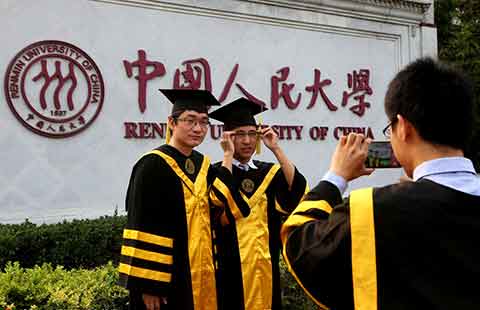China's solar panel producers seeking revival
(Xinhua) Updated: 2012-11-27 16:36According to the requirement, each provincial-level region may apply to establish no more than three solar energy demonstration areas with a total installed capacity not exceeding 500,000 kilowatts.
The building cost of China's distributed solar power stations now stands at 7 to 8 yuan per kilowatt-hour, which means these small-scale solar power stations can recover their costs within 3-4 years of operation in solar resource rich regions.
Shanghai-headquartered JinkoSolar Holding Co Ltd, one of the only two profitable enterprises among China's companies listed in the US, began to cut its market share in US and European countries last year, and has been expanding in the domestic market.
"Domestic sales volume now accounts for 30 percent of the company's gross sales," said Chen Kangping, chief executive officer of the company. He added that the firm has set up a special team to prompt home marketing.
"China is transforming from a big solar panel producer to a big user with technology upgrading and policy support for the clean energy use," said Yao.
Commerce Minister Chen Deming told reporters on the sidelines of the 18th National Congress of the Communist Party of China earlier this month that the US is losing out with its decision to approve steep duties on Chinese-made solar panels.
"The unilateral trade action against China's solar panel export will also impact the instigator. China is developing, urbanizing, China has a lot of construction under way and will need solar products," he said.
President Hu Jintao noted in his report at the 18th CPC national congress that China's economic development should be driven more by domestic demand and strategic emerging industries, which will enable the country to sustain long-term development.
China has carried out a spate of supportive measures aiming at shoring up the solar panel producers and promoting the use of solar energy.
The State Grid Corporation of China, announced a plan in October to facilitate the connection of solar power stations to the main electronic grid, breaking the bottleneck that has stifled domestic demand for solar panels.
It said that SGCC will allow solar generators with less than 6 megawatts of installed capacity to be connected to the grid, and also provide technological assistance and waive charges associated with connection.
Analysts said the move will boost domestic demand and help the solar panel producers weather through its current hardship, which is too dependent on the overseas market.
- China to install 3,000mW solar thermal power by 2015
- Solar firms warned on delisting
- China's 1st tower-type solar-thermal power station
- China to approve more solar projects
- US tariffs on Chinese solar products 'hurt all sides'
- Daunting challenges ahead for Chinese solar companies
- EU starts subsidy probe of Chinese solar panels
- Huawei's $1.73b investment in UK to go ahead despite Brexit vote
- DSM sees healthy growth in Chinese market
- Novo Nordisk eyes technology tie-ups
- China's P2P lending sector faces risk control challenges
- VW to fork out $15b over cheatings
- Pfizer bolsters China presence with $350m plant for biotech
- US extends ZTE reprieve from sanctions over alleged violations
- GE to double its procurement from China to $10b around 2018


















